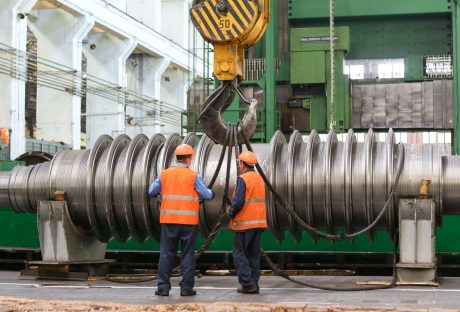Forex trading robots are getting immense popularity amongst traders these days. Broadly, these robots are programmed software which enables traders to effectively and efficiently automate their forex trades. There are hundreds of forex robots available online and each one of them claims to provide you with optimum support and profitability. Full time traders can especially benefit from such bots as they allow them to trade 24/7 and that too with minimum margin of error.
How to Choose the Right Forex Robot?
Although there are many alternatives available, it is significant to select the right one. The purpose of this post is to highlight some of the great bot options you have in hand. Plus, we’ll also find out the Best Forex Trading Robot 2019.
What to Look for in a Forex Robot?
Selecting the right forex robot for your trades isn’t an easy thing. There are many online agents with each one proclaiming to offer the most productive robot software, the superlative platforms and the distinguished technical analysts. Below you will find some of the ways that can help you pick the bot that fits your trading style:-
Trust Referrals:
One of the ways through which you can actually discover the best option is to take advice from people who have already invested in forex robots. Reviews from seasoned traders can help you identify the illegitimate brokers who do not adhere to the industry standards or who are not genuine or trust-worthy brokers.
Track the Performance of Different Trading Systems:
There are many websites which rank different EAs. You can track the performance of different trading systems on such sites. Make sure to focus on ROI to assess the performance. In addition to that, also pay attention to the actual drawdown of the trading system you’re exploring.
Look into the Trading History:
MYFXBook.com is a great option as it allows you to see the trading history of different vendors. If they haven’t shared their history, it’s a clear indication that there might be huge drawdowns and the broker just doesn’t worth your time.
Pay Attention to the Testimonials:
Third-party reviews give you great insight into past performances of different vendors. It will help you figure out the returns, the previous trades captured, the drawdowns and all the other relevant trade metrics.
Talk to the Vendor:
One of the great ways to choose the right robot for your trades is to ask smart questions to the vendor. Talk about the success ratio and the ideal platforms that could be used. Don’t trust the owner if you think the provided answers are misleading or vague. It will also help you rectify how well they treat their clients.
The Top 2Trusted Forex Robots in 2019 and Beyond:
1. Forex Fury Robot:
Forex Fury Robot is currently the most result-driven option on the market. Regardless of your skill level, this software provides a safe and aggressive approach towards trading. This robot claims to have a 93% win ratio with MYFXBook accounts. This product lands with tested and verified settings along with ECN support. The best bit is, it can perfectly blend with any MT4 trading and is ideal for multiple pairs.
Forex Fury’s effective money handling mechanism is great for constant growth and optimum results. Moreover, its low-risk strategy is perfect to ensure lowest drawdowns. This bot is extremely easy to install and comes with comprehensive guide and tutorial videos.
2. Forex Steam Robot:
Forex Steam is yet another fully automated trading solution that ensures long-term growth and sustainability. You can immediately download the product after buying it. The installation is free and you can also take guidance from the enclosed material.
Forex Steam Robot provide its users with regular free updates and has 4 years of extensive, verified experience in the trading field. With this product, you will also get 4 licenses which can be used/reused on different live accounts.
The availability of advanced filters, break-even, and other user-friendly features make this product fit for all traders.
Conclusion:
All in all, forex trading robots provide more reliable and quick trading results than manual working. Not only they can scan data very fast but are also able to perform round-the-clock trading. As these programs employ the most up-to-the-minute information, they tend to deliver higher success rates and huge returns.
Both these forex trading robots are trusted and promise to cater to great trading results. Both choices include verified evidence and tested and optimized a set of strategies. You can pick any one of them to enjoy automated trading with latest and updated features and great win-ratio.
But, it’s also important to understand that even the perfect trading strategies will suffer losing months. To achieve maximum returns, just be certain to invest in a robot that can deliver great results in low-risk settings. Select a product that you can trust as a trader. Happy trading!
Read Also:






















